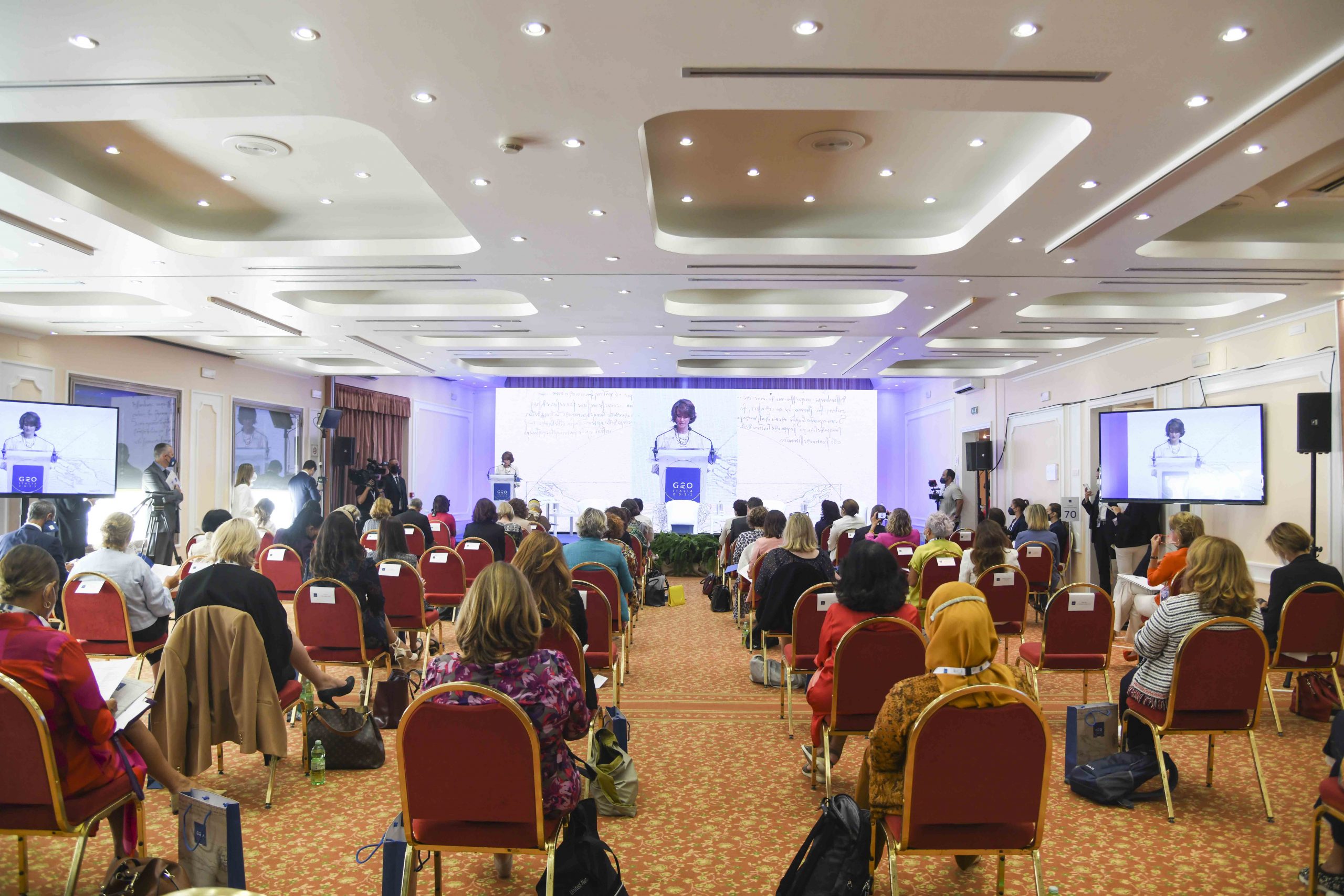Waking up at 5.30 am and working long hours as a hostess was not a sacrifice, but a choice. The atmosphere of hope and willingness to make an impact helped me ignore the pain from my heels and the scorching heat. This is the backdrop that welcomed Ms. Elena Bonetti, along with the other G20 Gender Equality Ministers, on the 26th of August in Santa Margherita Ligure, Italy.
The 3 pillars of this year’s G20 are People, Planet, and Prosperity, with the aim of changing the world today, to make it a better place for tomorrow. The summit focused on equitable economic development and recovery, sustainability, digitalisation, and transparency, and inclusivity; all instrumental in the strengthening of the international trading system. With that comes the inaugural G20 Conference on Women Empowerment, marking an important milestone for the advancement of women’s rights.
Ms. Bonetti, Italian Minister for Equal Opportunities and Family, held the women empowerment summit, gathering Gender Equality Ministers from the G20 nations. They were joined by representatives from the business community, academia, civil society, and independent organisations, including UN Women, International Labour Organisation (ILO), Organisation for Economic Cooperation and Development (OECD), and the official G20 engagement group, Women20 (W20). Together, they opened a debate and collectively worked on four main areas:
- STEM, Financial and Digital Literacy;
- Environment and Sustainability;
- Labour and Economic Development;
- Work-Life Balance.
After the mesmerising experience of a boat trip to Portofino and a delicious dinner at Villa Durazzo, the ministers and guests had a long working day at the Grand Hotel Miramare, where the conference took place. The day was characterised by fruitful work and insightful speeches.
Touching was the address by Ms. Linda Laura Sabbadini, W20 Chairwoman, who cleverly highlighted during a roundtable with Ms. Elizabeth Moreno, French Minister, that “women are the other half of the world”. Hence, “it is necessary to invest in female occupation and in the active fight against gender stereotypes”, as stated in W20’s communiqué entitled ‘From inclusivity to empowerment’.
Linked to the concept of stereotypes, Ms. Bonetti asserted that they “hinder the access of girls to [STEM] disciplines”, therefore posing a further need to “guarantee that a growing number of girls can freely mature the choice of studying these competencies so as to contribute as prime movers to the development of the planet”. Ms. Bonetti firmly stated that “women’s empowerment is a priority for our countries” and we must make a collective effort to promote gender parity. The world needs more women in leadership positions because they are the key to global growth. Standard and Poor’s research insights show that if gender parity in employment were reached, the US economy would grow by 8.7%, the French economy by 17%, and the Japanese by 14%. In the US, according to the World Economic Forum’s Global Gender Gap Report, only 42% of managerial positions are covered by women and an American woman’s income is slightly more than half (65%) that of a man’s. These unacceptable statistics evoke the urgency and the need to severely reduce this gap. Women should not accept this and should know that we are fighting this battle together.
An unexpected change to the G20 agenda was made following the recent humanitarian crisis in Afghanistan. A session with gender equality ministers was held during the conference to tackle the crux of the issue. We are in an era where human and women’s rights are at stake; the risk of having a whole generation of Afghanistan women without rights, without a job, without an education, without the freedom they fought for in the last decade is extremely concerning.
Furthermore, participants acknowledged how the pandemic has enhanced gender inequalities, hitting the most vulnerable categories. G20 participants reiterated their 2014 goal set in Brisbane to reduce the gender gap by 25% by 2025. Only through a global agenda incorporating transversal and systemic policies covering all aspects of a woman’s life will gender parity be obtained.
The Italian Presidency wanted a day entirely dedicated to women. Why is that? Because we need to achieve gender equality – we need equality in education, we need equality in salaries, we need more women in leadership positions. Diversity is good and, quite frankly, very much needed. Could this G20 be the milestone in the collective move from inclusivity to empowerment?






0 Comments